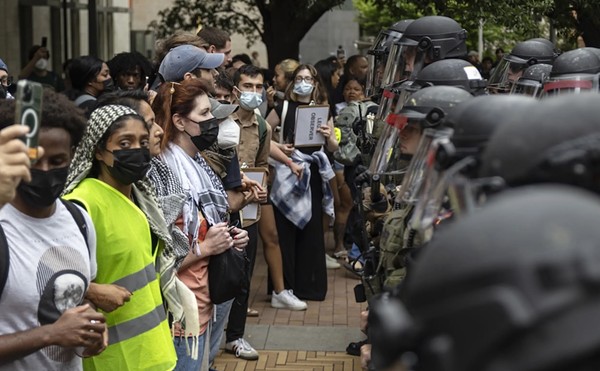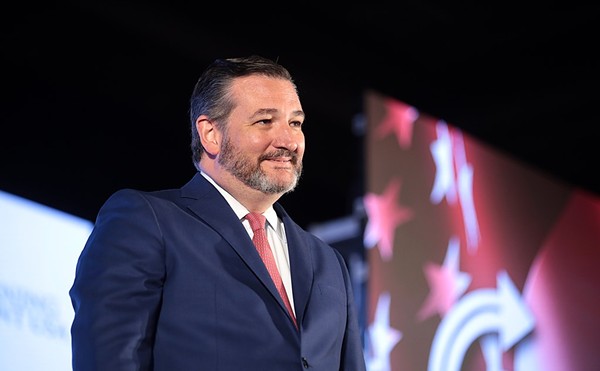Last December, it was possible to look ahead with some degree of hope. Vaccines were on the way, along with the prospect of a return to “normal” life and a functioning economy. It was also possible to think that the devastation wrought by the pandemic might awaken a recognition by local leaders that the San Antonio community worked well for some but barely at all for many.
Now here we are, at the end of another COVID year, burdened by the arrival of yet another variant at a time when the national and local social and political divisions appear as deep and perplexing as ever. The outlook looks bleak. Just like the hope that what passes for political and civic leadership in San Antonio might have begun to seriously consider the depths of poverty and need revealed by the lines for the Food Bank. In the wake of the calamity, the city keeps doling out subsidies for expensive housing to the likes of Graham Weston and Silver Ventures even as booming real estate sales push up inner-city appraisal values — and property taxes — for burdened homeowners.Perhaps nothing this year did so much to highlight this continued deficiency as the devastating February freeze. Sure, the catastrophe of Winter Storm Uri was magnified by the utter failure of Texas’ deregulated utility system, but our local utilities — both CPS Energy and SAWS — managed their own failures. Unprepared, they failed to communicate with each other, with municipal governments and with us, their customers and owners. It was bad enough to freeze without power and deal with no water and frozen pipes. But we simply weren’t given enough information about the situation and the prospects for relief. Added to that, the city and county were remarkably slow in aiding the elderly, those with health problems and others in need.
The missteps by our public utilities, particularly CPS Energy, seemed bad enough at the time. But the ensuing months have brought a string of revelations about CPS that have raised further questions about the organization’s leadership and culture.
First, the leadership of CPS’ legal team resigned in the wake of its lawsuits against natural gas suppliers. Reporting revealed that the utility’s attorneys had filed internal complaints regarding CEO Paula Gold-Williams.
Those management issues didn’t stop with Gold-Williams, or when she announced her resignation, however. A KSAT news investigation uncovered serious concerns about Chief Operating Officer Fred Bonewell, ranging from alleged racial insensitivity to documents suggesting he’d used his CPS-issued purchasing card for expensive meals. Bonewell resigned shortly after the revelations.
But the most troubling aspect of the issues involving Bonewell, and allegations of similar misspending by Gold-Williams, was that other CPS employees reportedly submitted internal complaints that produced little or no action by the utility. That suggests the problem wasn’t simply a matter of insensitivity or petty corruption. It appeared to be a pattern of management’s negligence, of covering up problems and failing to deal with issues both large and small.
You might think that a year of failures and management misadventures would provide a wakeup call not just to CPS but to Mayor Ron Nirenberg and city council. Instead, CPS announced the immediate imperative for a rate increase, with a council vote scheduled for mid-January. The utility’s insensitivity to public concern has been matched by its efforts to “educate” customers about its presumed needs, including recorded telephone messages promoting its town hall meetings. Its sales pitch is that the rate increase is needed to keep up with the “community’s continued strong growth.”
One might expect howls of outrage from Nirenberg and the council. Instead, some of our elected officials have been taken in by the claim that our “bond ratings are at risk” or the argument that the increase is only a modest one. It’s the same old story. So long as CPS’s revenues keep supporting the city’s general fund, there is no imperative to ask serious questions or call for an outside review and audit.
That’s the way far too much of the public’s business works in San Antonio — and has for years. Failures become evident, public policies don’t yield the promised results, city staff produces reassuring presentations and things just continue the same way.
When it comes to problems with the Housing Trust, questions about tax subsidies, a critical analysis of housing demolitions, staff assure us everything is fine, it’s just that residents don’t understand how things really work. What we really need, they argue, are more nonstop flights and a $2 billion-plus airport expansion.
After the colossal failures of CPS and the city’s apparent unwillingness to demand accountability, it’s time for San Antonians to reject assurances that the status quo is just fine. Clearly, it’s not.
Heywood Sanders is a professor of public policy at the University of Texas at San Antonio.
Stay on top of San Antonio news and views. Sign up for our Weekly Headlines Newsletter.


















